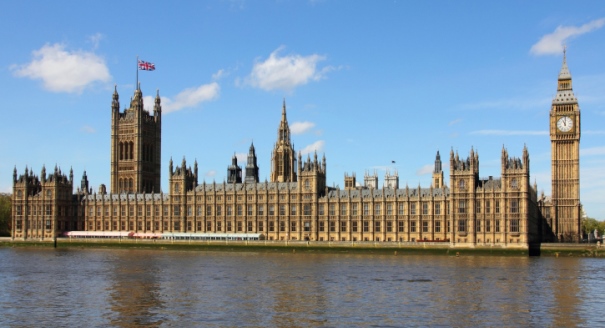With all the nonsense of the U.S. federal government shutdown, questions are once again being raised about whether democracy can really cut it in the twenty-first century, or whether we shouldn’t just hand things over to an enlightened global elite. Well, Churchill’s “least bad system” may be looking battered and occasionally embarrassed, but there are signs that there’s life in the old dog yet.
Take some of the most recent developments around the Middle East.
It was amusing to observe the coalition of characters opposed to the rapprochement between U.S. President Barack Obama and Iranian President Hassan Rouhani. Although restrained, the prime minister of Israel was not a happy Bibi when the U.S.-Iranian reconciliation overshadowed his appearance at the UN General Assembly. Benjamin Netanyahu said recently that there was a real danger that the surprise thaw between the United States and Iran might be part of a plan by Tehran to “dupe” the West.
Netanyahu can take heart that he shares his misgivings about the rapprochement with the chief of Iran’s Revolutionary Guard, Major General Mohammad Ali Jafari, who referred to the fifteen-minute phone call between Obama and Rouhani as “a tactical error.”
For observers who look at the Middle East today and are reminded how the great power outsiders were busy poking the Balkan hornet’s nest in spring 1914, the easing of tensions between Iran and the United States allows a brief sigh of relief. There is hope that this may be the start of a process that will confer a greater degree of stability on a highly neuralgic situation.
True to their unflinching belief in the innate wisdom of U.S. security policy, British Prime Minister David Cameron and Foreign Secretary William Hague both welcomed Obama’s decision to reach out to his recently elected Iranian counterpart. Quick as a flash, Hague held two meetings with Iran’s Foreign Minister Mohammad Javad Zarif on the fringes of the UN General Assembly, as both Britain and Iran looked to get their diplomatic relations back on track and focus on issues such as Syria.
Cameron and Hague may wish to thank the Labour Party leader, Ed Miliband, and the UK parliament for this upturn in the Middle East’s diplomatic prospects. Because it is highly unlikely that any of this would have happened if the House of Commons had not voted in late August to reject Cameron’s proposal for the use of force against Syria. The United States was already drawing up operational plans for military strikes, but these would have required both the political and logistical support of the British.
Had parliament approved Cameron’s request, cruise missiles would likely have winged their way toward Damascus and elsewhere some three days after the vote. Any thought that Rouhani could have reached out to the United States under such circumstances would have wilted immediately.
But, no. Despite huge pressure, despite hyperbolic warnings that rejecting the Cameron proposal might sound the end of the special relationship, and despite withering criticism from Washington’s surprise new best friend, French President François Hollande, the British government was defeated in a free vote when a large number of Conservative members of parliament followed the Labour leader by saying “No!” to military action.
Parliament acted as a brake on overweening power. Democracy worked and played an important role in switching Western strategy from war-war to jaw-jaw.
When Cameron attempted to persuade parliament to use force, he was encouraged by his predecessor-but-one Tony Blair, who called for a bombing campaign in the forthright fashion that only a peace envoy can. But, in fact, it was Blair who was largely responsible for Cameron seeking parliament’s approval and for parliament saying no. Lawmakers were not going to allow the prime minister to usurp the prerogative of deciding on war and peace as Blair had done over Iraq in 2003.
The former prime minister’s refusal to seek parliamentary backing for the intervention in Iraq was a high point in his drive to turn the prime minister’s office into a U.S.-style presidency. When it came to important negotiations, foreign and defense ministers would be shown the back seat.
The contempt for these offices of state was summed up when Blair appointed Margaret Beckett foreign secretary. Beckett was a highly competent politician but had no experience or interest in foreign affairs. As if to emphasize his admiration for American-style government, Blair also established the UK Supreme Court as the highest tribunal in the land.
After August’s vote, many people derided Cameron for failing to manage his own party’s voting competently. In fact, he had made a wise decision. Parliament is there to hold the executive accountable for its actions. And on this occasion, it worked, and in consequence there are now real negotiations that might one day lead to real peace in Syria.








